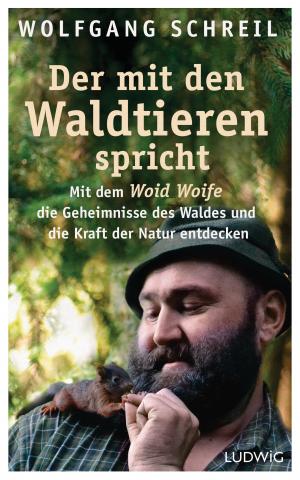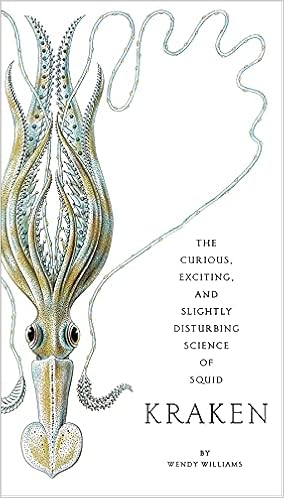Special moments, amazing encounters, fascinating animal facts.
DER MIT DEN WALDTIEREN SPRICHT
(The Woodland Animal Whisperer)
by Wolfgang Schreil
Ludwig/Penguin Random House Verlagsgruppe, August 2021
 No one is as at home among wild woodland animals as Wolfgang Schreil: he gets up close and personal with red deer and lynxes, photographs a hunting stoat at ten paces, gets within touching distance of poisonous snakes, and stands among roe deer grazing peacefully by his side. How does he manage to get so unbelievably close to them, to share moments of connectedness that count among the happiest times of his life? For Wolfgang ‘Woid Woife’ Schreil, the woods represent a safe haven and place where we can be truly free. His gripping stories, his priceless knowledge of the animal world and his close-up animal photographs have made him a very special woodland ambassador. His immense passion for life and animals, his faith in the power of love, and his belief that nature’s greatest gifts are revealed to us if we are only patient, are an inspiration for each and every one of us who yearn to be mindful of what really matters.
No one is as at home among wild woodland animals as Wolfgang Schreil: he gets up close and personal with red deer and lynxes, photographs a hunting stoat at ten paces, gets within touching distance of poisonous snakes, and stands among roe deer grazing peacefully by his side. How does he manage to get so unbelievably close to them, to share moments of connectedness that count among the happiest times of his life? For Wolfgang ‘Woid Woife’ Schreil, the woods represent a safe haven and place where we can be truly free. His gripping stories, his priceless knowledge of the animal world and his close-up animal photographs have made him a very special woodland ambassador. His immense passion for life and animals, his faith in the power of love, and his belief that nature’s greatest gifts are revealed to us if we are only patient, are an inspiration for each and every one of us who yearn to be mindful of what really matters.
German stone lifting champion, renowned environmentalist and animal expert – Wolfgang Schreil‘s CV contains many surprises. Yet his extraordinary connection to animals and woodlands has always been a constant in his life. His wisdom and contagious enthusiasm for forests and their inhabitants have inspired and delighted people everywhere; and he is as famous for his stunning close-up photographs of woodland animals as for his trademark green felt hat and hiking stick.

 The ocean is the last remaining source of profound mystery and discovery on Earth with eighty percent of it still largely unexplored; thus, it is of perennial fascination. In KRAKEN, journalist Wendy Williams introduces one of the ocean’s most charismatic, monstrous, enigmatic, and curious inhabitants: the squid. More than just calamari, squid species are fascinatingly odd creatures, with much to teach us about our own species, not to mention the obsessive interest so many of us can’t help but have for the enormous beast that is the giant squid, which is quick to attack sperm whales, and even submarines and boats. Williams also examines other equally enthralling cephalopods, including the octopus and the cuttlefish, and explores their otherworldly abilities, such as camouflage and bioluminescence. Kraken takes the reader on a wild ride through the world of squid science and adventure, along the way answering some riddles about how the human brain works, what intelligence really is, and what monsters lie in the deep. Wendy Williams weaves a rich narrative tapestry around her subject, drawing powerfully on the passions and discoveries of scientists, fisherman, and squid enthusiasts around the world.
The ocean is the last remaining source of profound mystery and discovery on Earth with eighty percent of it still largely unexplored; thus, it is of perennial fascination. In KRAKEN, journalist Wendy Williams introduces one of the ocean’s most charismatic, monstrous, enigmatic, and curious inhabitants: the squid. More than just calamari, squid species are fascinatingly odd creatures, with much to teach us about our own species, not to mention the obsessive interest so many of us can’t help but have for the enormous beast that is the giant squid, which is quick to attack sperm whales, and even submarines and boats. Williams also examines other equally enthralling cephalopods, including the octopus and the cuttlefish, and explores their otherworldly abilities, such as camouflage and bioluminescence. Kraken takes the reader on a wild ride through the world of squid science and adventure, along the way answering some riddles about how the human brain works, what intelligence really is, and what monsters lie in the deep. Wendy Williams weaves a rich narrative tapestry around her subject, drawing powerfully on the passions and discoveries of scientists, fisherman, and squid enthusiasts around the world.
 These new and collected essays from the acclaimed naturalist Barry Lopez—his final undertaking—represent the culmination of a lifetime’s thought in service of our relationship with wilderness, and with each other. Here, his collected essays offer a unifying vision; his drive to reconnect the cultural and the natural is unflinching, and major, never-published pieces offer profound commentary on topics that veer from the autobiographical—his abuse as a child—to the evolution of his views on the untamed. His classic prose, like the arctic landscape he elegized, remains as ever: “spare, balanced, extended…” It has been said that Barry Lopez understood what we gain when we accept the enormity of what we don’t know; these essays hinge on that tantalizing concept.
These new and collected essays from the acclaimed naturalist Barry Lopez—his final undertaking—represent the culmination of a lifetime’s thought in service of our relationship with wilderness, and with each other. Here, his collected essays offer a unifying vision; his drive to reconnect the cultural and the natural is unflinching, and major, never-published pieces offer profound commentary on topics that veer from the autobiographical—his abuse as a child—to the evolution of his views on the untamed. His classic prose, like the arctic landscape he elegized, remains as ever: “spare, balanced, extended…” It has been said that Barry Lopez understood what we gain when we accept the enormity of what we don’t know; these essays hinge on that tantalizing concept. There is something afoot in the world of animals and plants, something which has so far caught too little attention. Wherever they can, animals and plants are moving towards the earth’s poles to flee from rising temperatures and drought in their natural habitats. Tropical zones lose their inhabitants, beavers are settling in Alaska, gigantic shoals of fish disappear just to reappear in front of foreign coastlines. Sea creatures move an average of 72 kilometres a year, land creatures an average of 17 kilometres. In this exciting and vivid book, Benjamin von Brackel describes a phenomenon which demonstrates nature’s impressive adaptability as well as the dramatic consequences of climate change – not the least for humankind, for the migration of species won’t leave us unaffected.
There is something afoot in the world of animals and plants, something which has so far caught too little attention. Wherever they can, animals and plants are moving towards the earth’s poles to flee from rising temperatures and drought in their natural habitats. Tropical zones lose their inhabitants, beavers are settling in Alaska, gigantic shoals of fish disappear just to reappear in front of foreign coastlines. Sea creatures move an average of 72 kilometres a year, land creatures an average of 17 kilometres. In this exciting and vivid book, Benjamin von Brackel describes a phenomenon which demonstrates nature’s impressive adaptability as well as the dramatic consequences of climate change – not the least for humankind, for the migration of species won’t leave us unaffected.